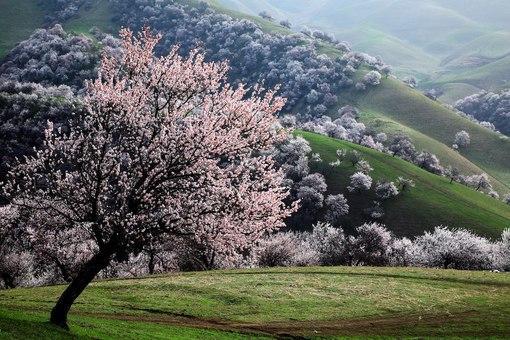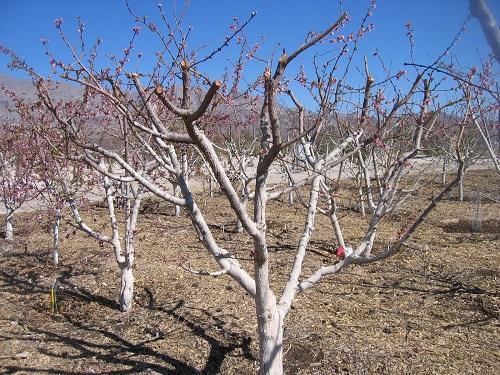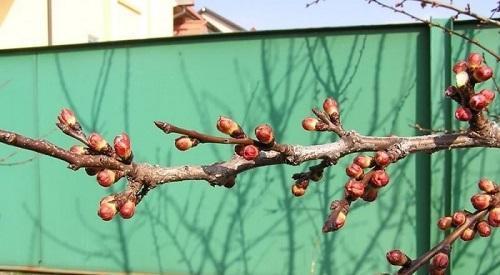Apricot does not bear fruit for many years: why and what to do?
 There is probably at least one apricot tree in every garden. However, quite often gardeners are faced with such a problem that every year the apricot begins to give a smaller harvest, or even ceases to please with its fruits altogether.
There is probably at least one apricot tree in every garden. However, quite often gardeners are faced with such a problem that every year the apricot begins to give a smaller harvest, or even ceases to please with its fruits altogether.
There can be many reasons why apricot does not bear fruit for many years. Most often, this situation occurs as a result of:
- mistakes in planting maintenance;
- adverse weather conditions;
- pollination problems.
How to properly care for an apricot so that it bears fruit?

Untimely tree care measures during growth, or their complete absence, leads to the fact that the apricot does not want to bloom. To avoid such a situation, you need to regularly, from year to year, pay a little attention to it:
- Apricot grows poorly on soil with high humidity, where water constantly stagnates. However, even with a lack of moisture, it will not have enough strength to bloom. Therefore, each planting season should be watered at least 4 times: in early spring (April), during the period of active growth of shoots (May), 2 weeks before the harvest ripens and at the end of autumn.
- Young saplings have enough organic matter, but adult trees need mineral fertilizing for fruiting. During the season, it is necessary to add 35 g of superphosphate and 15 g of potassium salt per 1 sq. m. trunk circle.
- To stimulate fruiting apricot needs pruning. The double cropping method has proven itself well. In March, the side shoots should be shortened to 50 cm and the tops should be removed. In early June, cut off the tops of young shoots so that they begin to branch. In old trees with a thickened crown, also remove skeletal branches, transferring them to younger, 3-year-old shoots.
The soil under the apricot must be dug up in spring and autumn, and also loosened after watering to provide air access to the roots.
Rescue from frost

The heat-loving apricot is sensitive to a drop in temperature. If frosts return during flowering, they completely destroy the future harvest. Experienced gardeners recommend postponing flowering using the following procedures:
- at the end of autumn, water the tree abundantly and spray with auxins;
- compact snow around the trunk in winter;
- at the end of February, treat the apricot with a solution of urea and copper sulfate (700 and 100 g, respectively, per bucket of water);
- at the beginning of spring, whitewash with a concentrated solution of slaked lime.
Problems with apricot pollination
The reason for the lack of fruiting may be the self-infertility of the variety, therefore it is recommended to plant at least two apricots, one of which will self-fertile.
The distance between trees should be no more than 6 m in order to ensure the possibility of cross-pollination and to protect from stretching the crown.
It is recommended to plant flowers between the apricots that bloom at the same time with them. This will help attract the bees.
Tell me how to be? I have been growing apricot trees for 25-30 years. For the last five years, there are very few fruits on them (20-30 pcs.) Before that, they bore fruit very well and actively. Rejuvenated twice already.Is it worth removing them and shedding new ones?
The reasons for the lack of fruiting and options for their solution are described in the article above. Try to feed the trees, if after that the fruiting does not improve, then the time has come to rejuvenate the garden with new seedlings.